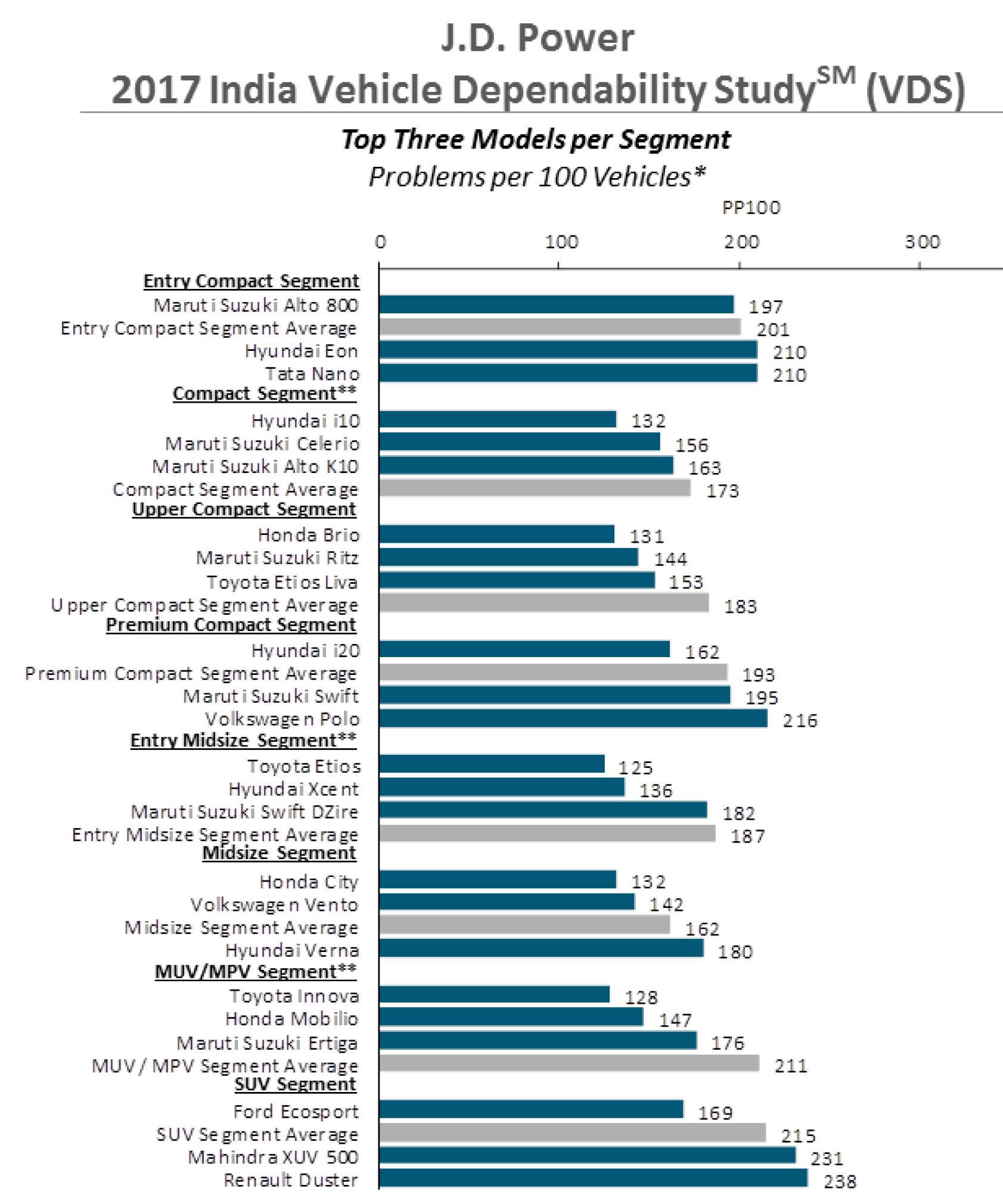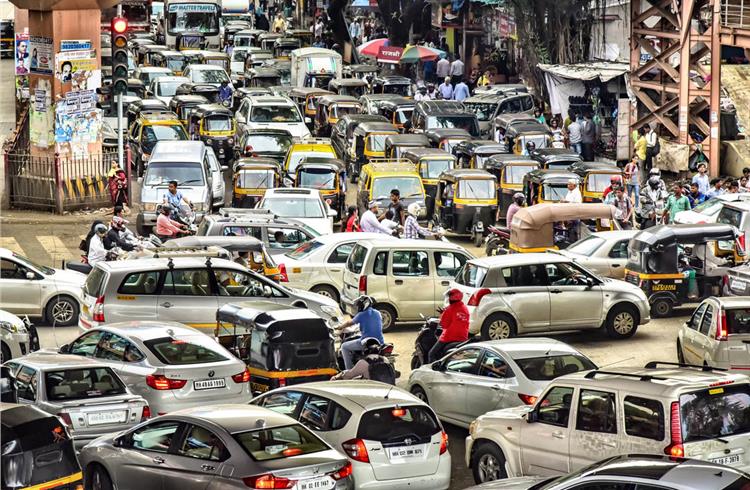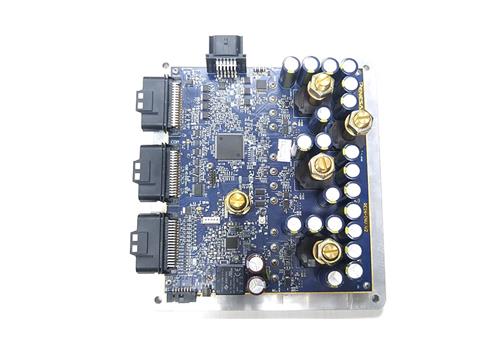Long-term vehicle dependability in India declines: JD Power
Vehicle exterior and driving experience account for most of the problems; uneven tyre wear, noise from doors, bumper and exterior corrosion more prevalent in vehicles driven for over 40,000km.
As per the claimed findings of the latest India Vehicle Dependability Survey (VDS) carried out by global consultancy JD Power, longer-term vehicle dependability in India has declined marginally. In 2017, 56 percent of new-vehicle owners faced at least one problem with their vehicle in the year compared to 53 percent in 2016.
The VDS, now in its 10th year, measures problems experienced by original owners of 30- to 42-month-old vehicles for 169 different problem symptoms across nine vehicle categories: vehicle exterior; driving experience; features, controls and displays; audio and entertainment; seats; heating, ventilation and air conditioning; vehicle interior; engine; and transmission. Overall dependability is based on the number of problems reported per 100 vehicles (PP100), with a lower score reflecting higher longer-term vehicle quality.
The survey carried out on 8,471 vehicle owners who purchased their vehicle between July 2013 and September 2014. The study covered 74 models in 12 vehicle segments (multi-utility/ multi-purpose vehicle (MUV/ MPV); sport-utility vehicle (SUV); premium SUV; van; entry compact; compact; upper compact; premium compact; entry midsize; midsize; premium midsize; and luxury) from 17 brands and was carried out between January to April 2017 in 40 cities.
Overall vehicle dependability in India averaged 189 problems per 100 vehicles (PP100) in 2017 compared to 185 PP100 in 2016. The vehicle owners reported that problems increased sharply after vehicles crossed 40,000km mark, with an average of 73 more problems per 100 vehicles being reported compared to vehicles driven less than 40,000km.
Vehicle exterior and driving experience accounted for most of the problems and within these two categories, problems relating to uneven tyre wear, noise from doors, bumper and exterior corrosion are more prevalent in vehicles that were driven for more than 40,000km.
“In addition to usage, varying road and weather conditions affect the longer-term dependability of vehicles in India. After about three years of ownership, problems related to squeaks and rattles are typically reported which is likely to impact overall build quality perceptions.
Automakers that are able to identify such problems related to extended use – and resolve them at the manufacturing stage – are likely to be able to provide a more positive ownership experience for their customers,” said Shantanu Nandi Majumdar, director at JD Power.
The study pointed out that diesel vehicles are more prone to problems compared to their petrol counterparts after 40,000km. Also, that 67 percent of diesel vehicle owners needed to replace components in their vehicle compared to 58 percent of petrol vehicle owners.
Other highlights of the study
- The incidence of repairs for unexpected problems in 2017, at 22 percent, was at the lowest level since 2013. Owners who faced unexpected repairs reported more problems than owners who haven’t had any unexpected repairs (366 PP100 vs 138 PP100 respectively).
- In 2017, people opting for extended warranties increased to 38 percent with first-time vehicle owners more likely to opt for it compared to repeat owners (44 percent vs 31 percent respectively).
- Longer-term vehicle dependability builds advocacy and loyalty among users, with satisfied owners more likely to refer the vehicle brand in their social circles.
Segment winners
The Maruti Suzuki Alto 800 ranks highest in the entry compact segment while the Ford EcoSport ranked highest in the SUV segment.
The Hyundai i10 ranked highest in the compact segment while the Hyundai i20 was highest in the premium compact segment.
While the Honda Brio and City were ranked highest in the upper compact and midsize segments, respectively, the Toyota Etios and Innova ranked highest in the entry midsize and MUV/ MPV segments, respectively.

RELATED ARTICLES
Tata Elxsi-Renesas MCU for EVs enables cost optimisation, speedier time to market
Modular, scalable design of Motor Control Unit enables integration across diverse EV applications. Claimed to be reduce ...
Bosch hydrogen engine tech-powered truck to be on Indian roads this year
The global supplier of technology and services is betting big on both electromobility and hydrogen. While announcing the...
IIT Bombay inaugurates Arun Firodia Research Floor
IIT Bombay, one of India’s top technical and research institutions, honours Kinetic Group chairman Dr Arun Firodia, one ...





 30 Jun 2017
30 Jun 2017
 6788 Views
6788 Views





 Autocar Pro News Desk
Autocar Pro News Desk




